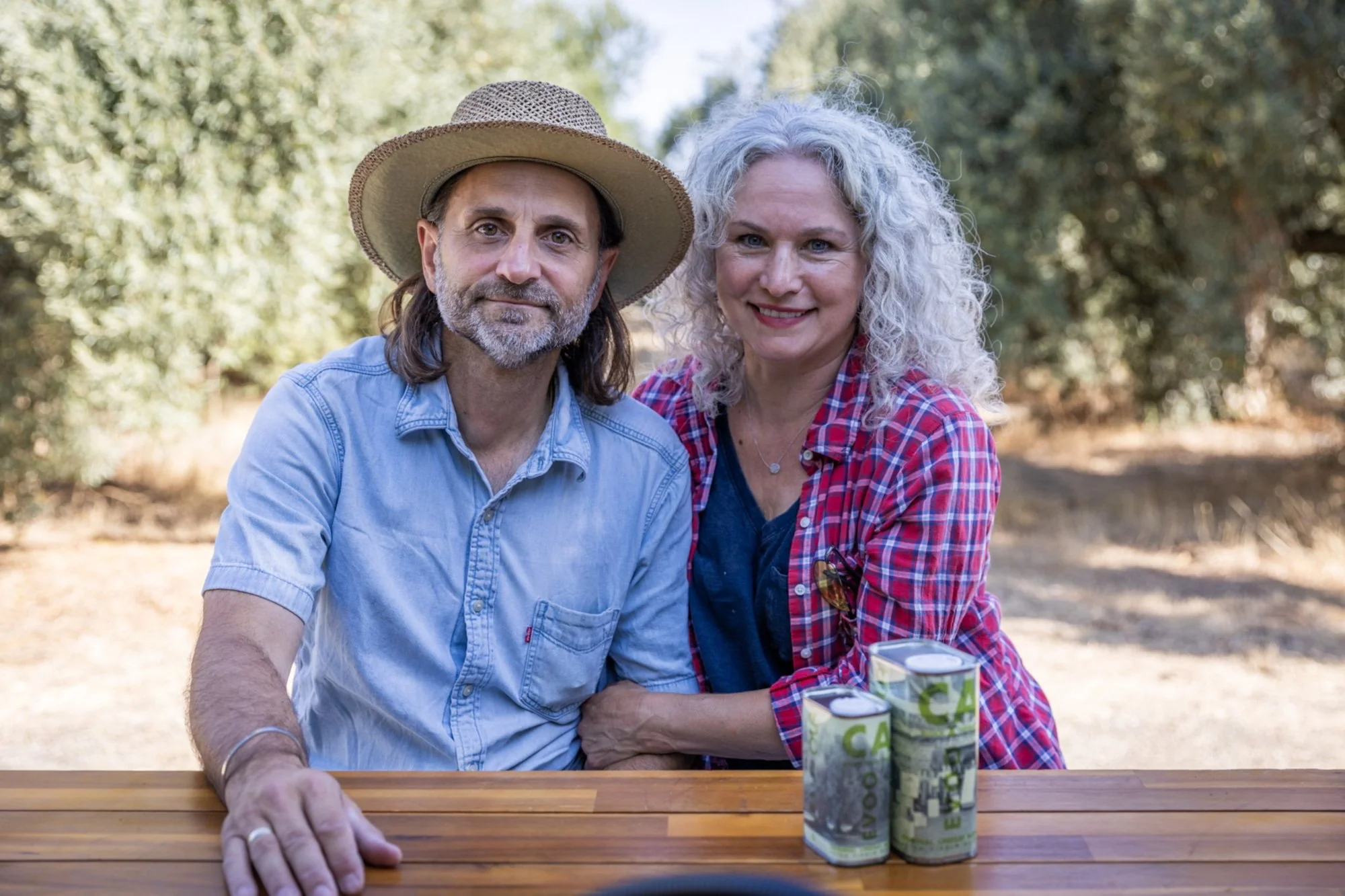Is Unfiltered Olive Oil Better Than Filtered?
Olive oil is one of the best and most versatile oils on the planet. Dubbed “liquid gold” by Homer, olive oil has been produced and prized for millennia and is a key part of the much lauded Mediterranean diet. (Read more about the Mediterranean diet.) It is made by extracting oil from the olives. Typically, the process involves crushing freshly harvested olives in a mill, pumping the resulting paste into a malaxator, and mixing it with mechanical pressure or centrifugation to separate the oil from the watery liquid that remains. After that, the olive oil can be filtered and bottled, or bottled unfiltered.
What Does Filtering Do?
Kathryn Tomajan photo credit Renee Vargas
“The purpose and point of filtration is to clarify the oil, and remove any remaining water and sediment,” says Kathryn Tomajan, founder of the EVOO producer Fat Gold in California. She is also an olive grower, miller and trained olive oil taster. “Fresh olive oil contains micro-droplets of water and little pieces of sediment from the fruit.”
Filtering out those micro-droplets of water and small olive bits—Tomajan uses a cellulose paper filter—leaves nothing but pure oil.
Sarah Santa founder of June Crush Consulting
“Filtration helps remove naturally occurring sediments and moisture, which can reduce the risk of spoilage or contamination during transport or storage,” explains Sarah Santa, an olive oil sommelier and founder of June Crush Consulting.
Producers seeking an alternative to mechanical filtration typically rack their olive oils, but the process leaves room for error.
Racking relies on gravity. Over time, the sediments will settle at the bottom of any storage container, making it easier to separate the pure oil.
Olivaia proprietors Giulio Zavolta and Rachelle Bross
“It is hard to imagine that racking could produce a better result than filtering, because filtering removes all sediment and residual moisture, which expedite degradation of extra virgin olive oils,” says Rachelle Bross, co-founder of the small-batch estate olive oil brand Olivaia in Lindsay, CA. “Filtering does a better job at removing the unwanted elements, so it is not too much of a stretch to extrapolate that a filtered oil will generally be of a higher quality, bringing out the best aromatics and flavors, and ensuring a longer shelf life.”
When and Why Filtered Is Best
Mazen Assaf, The Olive Oil Guy
Filtered olive oils have much longer shelf life than unfiltered olive oil, making them the most practical option.
“Unfiltered olive oil can be very exciting, but it has to be used at the exact right moment,” says Lori Jean Levy, founder of olive oil and specialty goods import company My Global Table. “Filtered olive oil is your best bet for an everyday olive oil that you can use for everything from drizzling to cooking. That water and those particles will cause the unfiltered olive oil to oxidize and degrade more quickly. When I see unfiltered olive oil on store shelves that is months old I get really sad, because I know it’s going to become rancid.”
Mazen Assaf, an olive oil sommelier and the author of The Book of Olive Oil concurs, explaining that the water and fruit particles in unfiltered olive oil ferment and turn oil rancid much more quickly than filtered olive oil.
“If you’re picking up a bottle months after harvest, or from a supermarket shelf, filtered is always the better choice,” Assaf says. “But both have their place in the olive oil world. The key is knowing when, and how, to enjoy them.”
When and Why Unfiltered Is Best
Fresh unfiltered olive oil
Olive oil lovers should approach unfiltered oils with the same reverence and short mental time window with which gourmands approach truffle season.
“Unfiltered olive oils should be celebrated and consumed right at harvest,” says Levy. “It is one of the best times of the year for olive oil lovers, and it does smack of terroir more evocatively than filtered olive oil. Unfiltered oil is a novella, pure romance, a time of holiday.”
It will appear cloudier, and taste richer, creamier and spicier than filtered oil oil.
“It is a blessing honestly, and when I have it I use it for everything,” Tomajan enthuses. “It’s cloudy, luscious, zesty and rich. It will feel fuller and rounder in your mouth. But it has to be consumed very, very quickly.”
Bottom line: filtered is your everyday oil, unfiltered is your harvest holiday oil. Drizzle, saute and feast accordingly.






